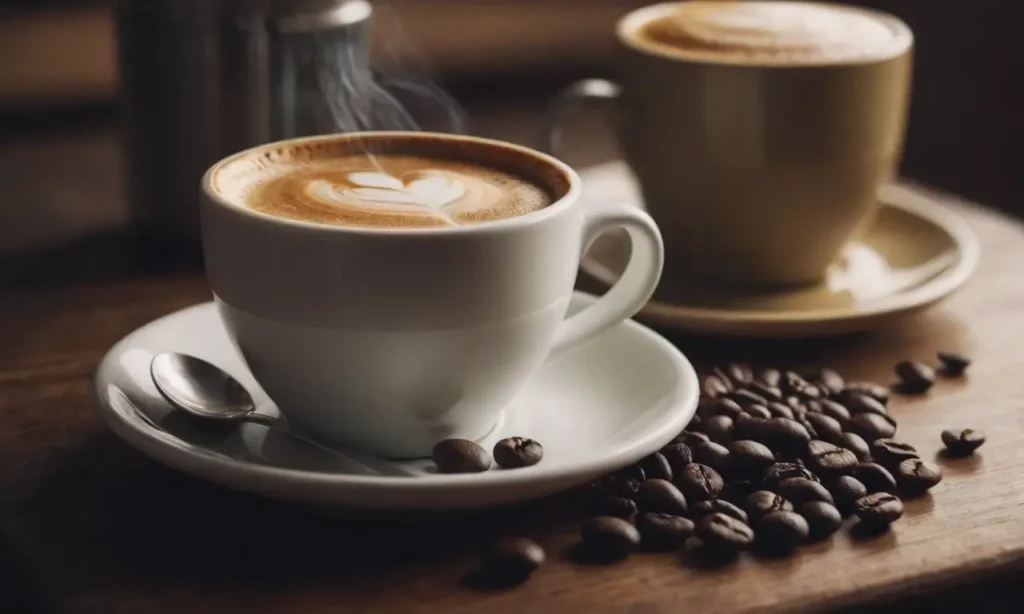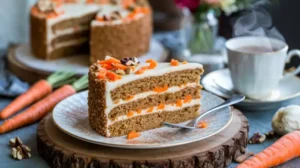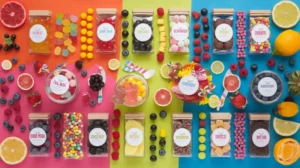For coffee enthusiasts and casual sippers alike, this question often brews curiosity: does decaf coffee taste different from its caffeinated counterpart?
The answer, in short, is yes—but the story doesn’t end there.

Why Does Decaf Taste Different?
Decaf coffee undergoes a decaffeination process that inevitably alters its flavor profile. Here’s why:
The Decaffeination Process: To remove caffeine, coffee beans are treated using one of these methods:
Solvent-Based Methods: Chemicals like methylene chloride or ethyl acetate are used to extract caffeine. While effective, these processes can slightly alter the beans’ natural flavor.
Swiss Water Process: A chemical-free method that relies on osmosis and water to remove caffeine. This method retains more of the bean’s original taste.
CO2 Process: A high-tech approach using carbon dioxide to target caffeine molecules without impacting other compounds.
Chemical Compounds and Flavor: Caffeine isn’t just a buzz-inducing agent; it’s also a flavor component. Removing it can strip some bitterness and body, leaving a smoother but sometimes muted taste.
Bean Quality Matters: Many decaf coffees use lower-grade beans since the decaffeination process can mask subtle flavor nuances. This often contributes to the stereotype that decaf tastes “flat.”
How Decaf Stacks Up in Flavor
To truly understand the difference, let’s compare key aspects of decaf and regular coffee:
| Aspect | Regular Coffee | Decaf Coffee |
|---|---|---|
| Flavor Profile | Robust, bold, and sometimes bitter | Milder, smoother, occasionally dull |
| Aroma | Strong and inviting | Subtle, less pronounced |
| Acidity | Balanced depending on the roast | Slightly reduced acidity |
| Body | Full-bodied in many cases | Tends to feel lighter |
How to Make Decaf Taste Better
If you’re worried about decaf being lackluster, fret not! Here are some tips to amp up its flavor:
- Choose High-Quality Beans: Look for single-origin or specialty decaf coffees. They’re more likely to retain their unique characteristics.
- Mind the Roast: Medium to dark roasts often taste richer in decaf form, as the roasting process enhances caramelization and depth.
- Grind Fresh: Pre-ground coffee loses its flavor quickly. Grind your beans just before brewing for maximum freshness.
- Experiment with Brewing Methods: Some methods, like French press or AeroPress, can extract fuller flavors compared to drip machines.
- Don’t Skimp on Ratios: Follow proper coffee-to-water ratios (around 1:16) to avoid weak or overly strong brews.
Common Myths About Decaf Coffee
Myth 1: Decaf Has Zero Caffeine
While decaf contains significantly less caffeine than regular coffee, it’s not entirely caffeine-free. A typical cup of decaf has about 2-5 milligrams, compared to 70-140 milligrams in regular coffee.
Myth 2: Decaf Is Only for the Caffeine-Sensitive
Not true! Decaf is perfect for those late-night cravings or when you want to enjoy a comforting cup without the jitters.
Myth 3: It’s Just Not Good
With advancements in processing and better bean selection, modern decaf coffee has come a long way. Don’t let outdated perceptions keep you from exploring.
They say drinking decaf is like riding a bike with training wheels—you’re still doing it, but something’s missing. But hey, it beats not riding at all, right?
Plus, decaf lovers can smugly sip their cup at 10 PM without worrying about being awake until sunrise.
Final Thoughts
Yes, decaf coffee does taste different from regular coffee, but not necessarily in a bad way. With better beans, mindful brewing, and a bit of experimentation, you might just find that decaf is worth the pour. So, the next time someone scoffs at your decaf order, simply smile and say, “It’s an acquired taste—just like your sense of humor.”
Happy sipping!



